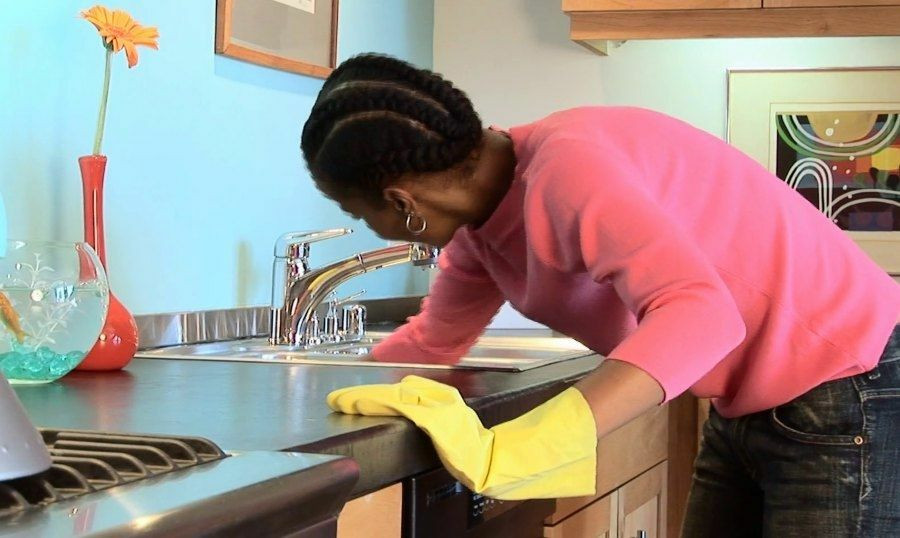Amongst the noise though, one message remains clear in our collaborative effort to flatten the curve:
- Stay Home
- Practice social/physical distancing by staying 6ft away from others and avoiding non-essential trips outside your home
- Wash your hands regularly for at least 20 seconds each time
- Practice healthy hygiene by coughing or sneezing into your sleeve and don’t touch your face.
So what else can you do to protect your health from COVID-19? Overall, the best way to minimize your risk of developing COVID-19 is by reducing the potential for exposure to the virus. The new Coronavirus is spread primarily through droplets generated when an infected person coughs, sneezes or spits when they talk. If these droplets were to come into contact with another person’s respiratory system the virus can be spread from person to person.
Wear a Mask
This has been a hot topic lately and while it took a bit of time, the Public Health Agency of Canada is now following in the footsteps of the Center for Disease Control in recommending that everyone wear cloth masks to help flatten the curve. But if you think the mask is all about protecting yourself – it’s not! The rationale for this recommendation is that there is a small percentage of people who may be carrying the virus but display no symptoms. These people may unknowingly contribute to viral spread and as such, wearing a mask can be a protective measure in reducing this. So it’s not that you are protecting yourself by wearing a mask, you are doing your part to protect others.
The recommendation for the general public is to wear cloth masks. Medical grade masks like surgical masks and N-95 masks are in short supply for our frontline healthcare workers, and should be reserved for them. If you have a supply on hand, consider donating it to local hospitals. Those that are sick or caring for someone who is sick should always wear a mask. For the general public, when wearing your cloth mask, ensure that it fits snuggly on your face and that it covers your nose and mouth whenever you have to do any interactions in public. If making your own mask or covering, ensure that it has multiple layers of fabric but still allows you to breathe. In general, before you put on your mask, wash your hands or use an alcohol-based hand sanitizer and at no times should you touch the front covering of your mask to put it on or take it off as this may cause contamination. Replace the mask with a new one as soon as it is damp and do not re-use single-use masks. Always take your mask off from behind the ears and discard or launder it right away after use. The effectiveness of wearing masks is much like physical distancing – a collaborative effort yields the most benefit with respect to reducing spread.
Need to get a mask? Support a Black-owned Canadian business. Available now via Beni Boo, Kaela Kay and Kejeo Designs.
Reduce Exposure
In addition to wearing a mask and proper handwashing, utilize these tips to help reduce your risk of being exposed to contaminants:
- Limit your trips outside of the house: Make grocery runs once a week; only go to essential medical visits; go for walks or walk your dog once per day.
- When going to the grocery store, make a game plan and have a list. This will help to reduce the time you spend in store as now is not the time to be indecisive when picking your groceries.
- At the store, wash your hands or put on gloves and wipe down your cart or basket handles (some stores are giving out wipes for this) avoid leaning on your cart.
- Pack your grocery bags in the car and wipe them down with a disinfectant
- Before getting in your car to drive remove your gloves with minimal contact with the exposed outer surface and discard them in a garbage bin.
- As you get in the house, wash your hands and unpack groceries from bags, throw away or launder bags, mask and change out of clothes that you were in. In addition, wash your hands before you handle anything like food and other household items. All of these measures should be in place to avoid bringing anything into your home.
Disinfect Your Home
When going out for essential trips the potential to bring back germs into your home does exist. As such, it’s important to ensure that you are regularly disinfecting anything that is coming into your home as well as high touch areas. The new Coronavirus can exist for periods of time on different surfaces as follows:
Cardboard - 24hrs
Metal - 72hrs
Plastics - 72hrs
Clothes and Wood - no longer than 4 hours
Food – does not last very long
Coronaviruses in general are one of the easiest types of viruses to kill. It’s an enveloped virus with a fatty outer layer that can be killed with soap or products with a minimum of 60% alcohol content – hence, wash your hands! When using commercial products, ensure that the appropriate disinfectant product is used – products that claim they kill 99.9% of bacteria for example won’t work to clean viruses.
In addition to soap and alcohol, products around the home that Health Canada recommends include diluted bleach. This bleach solution should be prepared according to the instructions on the label or in a ratio of 1 teaspoon (5 mL) per cup (250 mL). Directions are based on bleach that is 5% sodium hypochlorite, to give a 0.1% sodium hypochlorite solution. Don’t use bleach too often though as the fumes can irritate your respiratory tract.
When cleaning, pay close attention to high touch areas of your home: doorknobs, cupboard handles, light switches, the fridge door, toilet flusher, toys, tv remotes, game controllers, mobile phones and cases, jewelry and your wallet. Because groceries are likely coming in once a week, consider a more thorough clean of the entire kitchen weekly as well.
Support Your Overall Health & Immune Function
Optimizing your overall health is really important when it comes to having a resilient immune system. Coronavirus has been quite unpredictable with respect to the severity of symptoms. Yes people who are elderly and/or immunocompromised are in the high-risk population, but people from all walks of life, even young adults can become severely affected - this virus does not discriminate. Evidence from those affected in China point to underlying health issues like cardiovascular disease, diabetes and hypertension having close ties to the severity of COVID-19 symptoms, so it’s important to take measures now to improve your overall health.
- Improve Nutrition: Amongst the top of the list for panic purchases after toilet paper and hand sanitizer have been canned goods, frozen foods and other processed foods that can lack vital nutrients. At this point, grocery stores are not closed, so make sure to get fresh fruits, vegetables and other nutrient-dense foods which are the building blocks for your immune cells.
- Avoid Excessive Alcohol Consumption: Excessive drinking can reduce immune cell function and can contribute to the lifestyle diseases mentioned above. (Excessive drinking is considered to be five or more drinks in one sitting or 15+ drinks over a week for men and four or more drinks on one occasion or eight or more drinks over the course of a week for women).
- Reduce Stress: Of course this is easier said than done during this time, but where possible, take measures to reduce the stress response. Stress dampens immune function. Some simple ways to do this include deep breathing, meditation and exercise.
- Engage in Regular Exercise: Exercise has many health benefits that can help to support a healthy immune system. It is first-line therapy in the management of stress and is also effective in managing the diseases of lifestyle that exacerbate COVID-19 symptoms.
- Sleep: Adequate sleep at the right times is so important for overall health. Not only does poor sleep quality increase your stress response, it contributes to improper functioning of the immune system.
- Supplements: When all of the above basics are met, there are a few natural supplements that I love for helping the immune system remain resilient. Inquire with your healthcare practitioner on the immune benefits of vitamin d, vitamin c, zinc, probiotics as well as botanical herbs like astragalus and elderberry and if they are right for you.
Ultimately, all of these efforts are measures you can take to help protect yourself and your loved ones. While they do not guarantee that you won’t acquire COVID-19, they are steps that you can take to help to minimize your risk.
Dr. Candice Todd is a registered Naturopathic Doctor who has a background in health promotion with a degree in Health Sciences. In her naturopathic practice she has a special focus in women’s health and performance medicine - in essence she loves helping powerhouse women perform better!








